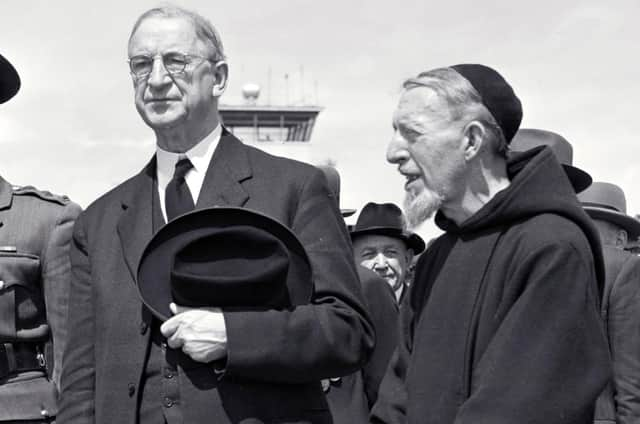It is little wonder that the number of Protestants in Ireland fell


The response of much of nationalism to the recent Northern Ireland census showing a greater number of Catholics than Protestants has at times been bordering on triumphalism, as if this was a political achievement.
I agree with nationalists that Northern Ireland was a flawed and partially sectarian state. But the Republic was far from a pluralist society (pictured President Eamon de Valera with a priest in the 1960s); hence Garrett Fitzgerald’s ‘constitutional crusade’.
Advertisement
Hide AdAdvertisement
Hide AdAnd Mary Lou McDonald has spoken of ‘the crimes of a reactionary Catholic Church and a confessional state’.


In 1996 the Forum for Peace and Reconciliation commissioned an academic report by JJ Sexton and Richard O’Leary on the decline in the Protestant population in the Republic (it had more than halved since the formation of the independent Irish state).
They identified the outworking of mixed marriages as perhaps the most significant factor. Their most striking — if not shocking — statistic was that in 1981, 86.1% of the children of mixed marriages were being brought up as Catholic.
With up to 20% of Protestants being in mixed marriages it is not surprising that their numbers fell so dramatically.
Advertisement
Hide AdAdvertisement
Hide AdAnd if the increase in the Catholic population in the North is to be celebrated, by the same logic should not the decrease in the Protestant population in the South be mourned?
The children of mixed marriages in Northern Ireland were also subject to the same church rulings. For example, Jean McConville, victim of one of the IRA’s most notorious crimes, was brought up a Protestant. She married a Catholic, and had 10 children, all of whom were brought up Catholic.
Hubert Butler, the perceptive Kilkenny essayist, wrote in 1954: “Before Ne Temere hostages were exchanged pari passu. Now there is no reciprocity and in those who have given all and received nothing there is a feeling of slow strangulation, which they are forced to dissemble. A whole community can die without drama.”
The census may very well portend a united Ireland — or it may not. In truth no one actually knows!
Advertisement
Hide AdAdvertisement
Hide AdIn the meantime our key task must be to create a society based upon mutual respect, one without ‘peace walls’, casual sectarianism and a fervid political atmosphere based upon inferring people’s views on the basis of the church they usually don’t attend on a Sunday morning.
That would be a united society really worth having.
Dr Philip McGarry, FRCPsych, Belfast